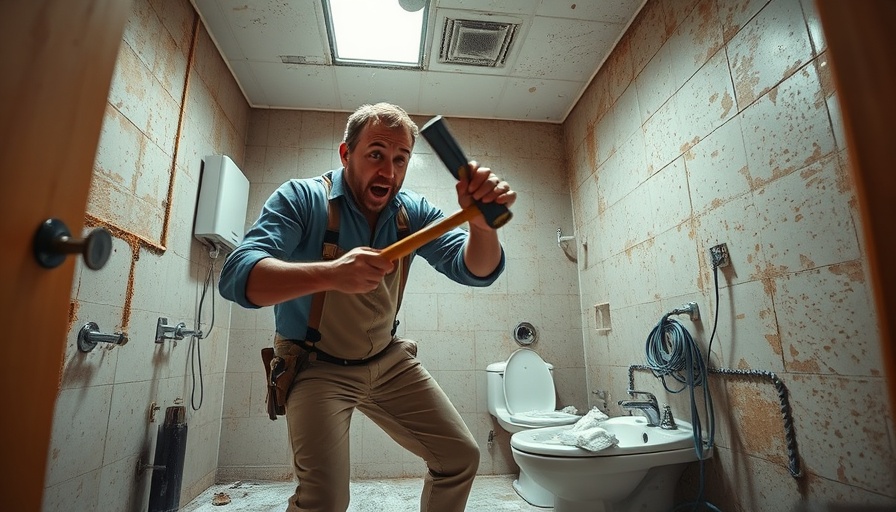
Understanding the Nuances of Vandalism Versus Faulty Workmanship in Property Claims
The recent court case of Carr v. Spinnaker Insurance Company unfolds a compelling narrative about the often murky waters of property insurance claims, particularly for those unfortunate enough to face damage from negligent contractors. When Karen Carr hired a painter who falsely claimed to be a licensed contractor, she certainly didn't expect that the aftermath would lead her into a legal battle with her own insurance company. This case is particularly relevant for South Carolina residents who might find themselves navigating similar hurdles in the claims process.
Defining the Terms: When is Damage Vandalism?
In Carr’s situation, her claim of vandalism stemmed from her assertion that the painter’s actions amounted to malicious destruction of her property. To qualify for vandalism coverage, however, proof of intentional and willful destruction is key—something Carr's situation lacked. The argument was pivoted from faulty workmanship to a vandalism claim, burdened with the requirement that intent must be evident. The case serves as a stark reminder that just because someone has caused damage, it doesn't automatically mean they’ve vandalized your property.
The Importance of Documentation
One critical aspect of the Carr case—and for anyone experiencing similar issues—is documentation. Carr had claimed damages resulting from the painter's careless work, but she couldn't sufficiently prove that it was anything more than a bad job. Ensuring that you have adequate documentation, including records of any paid services, communications with contractors, and photographs of damages, is essential in strengthening your case against insurers. In South Carolina, adequate records can mean the difference between a valid claim and a denial.
How Insurers Like Spinnaker Deny Claims
Spinnaker Insurance Company denied Carr’s claim based on their policy’s exclusion for faulty workmanship. Their investigation found no elements of theft or malicious mischief, leading to their conclusion that the damage arose simply from poor workmanship. This is a common tactic among insurance companies aiming to evade payouts. South Carolina residents should be wary of such tactics, often employed to sidestep their financial responsibilities.
Investigating Insurer Denials and Bad Faith Practices
When insurance companies deny claims, they may employ various strategies to avoid accountability. From utilizing vague policy language to emphasizing exclusions, many people feel lost when faced with denial letters. If you believe your claim is unjustly denied, seek guidance on your rights as a policyholder. The Carr case illustrates the importance of understanding not just the extent of your coverage but also knowing how insurance companies interpret claims.
Common Misconceptions About Coverage
One of the common misconceptions about property damage claims is the belief that any damage automatically qualifies for insurance coverage. The Carr case reveals that insurers will investigate claims thoroughly to identify loopholes and exclusions that could justify denial. Many homeowners fall victim to the allure of speedy settlements offered in the heat of a denied claim, but this often results in unfair payouts. Understanding the fine print of your insurance policy is vital; it can empower you as a homeowner.
Practical Steps if Your Claim is Denied
For South Carolina residents facing denied claims, follow these practical steps to potentially overturn a decision:
- Review Your Policy: Look for specific exclusions or coverage details related to your claim.
- Gather Evidence: Document everything—photos, receipts, witness statements can be invaluable.
- Request a Reassessment: Don't hesitate to appeal the decision and request further investigation.
Should your appeal be ignored, consider contacting an advocate or attorney experienced in handling unfair insurance practices.
Conclusion: Be Proactive in Protecting Your Insurance Rights
The issues surrounding Carr’s case highlight the importance of vigilance in dealing with insurance claims, especially when it comes to understanding the dangerous overlap between faulty workmanship and vandalism claims. As a homeowner in South Carolina, arming yourself with knowledge about your insurance policy, the claims process, and the tactics employed by insurance companies can protect your rights and save you from unjust losses. Engage in this process actively. If you face denial, remember you have the ability to fight back. Consulting a knowledgeable professional may provide the leverage needed for a better outcome.
 Add Row
Add Row  Add
Add 




Write A Comment